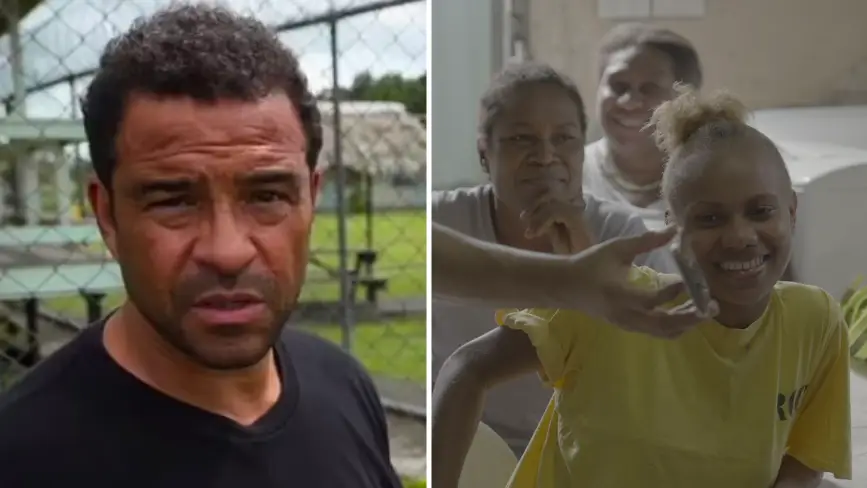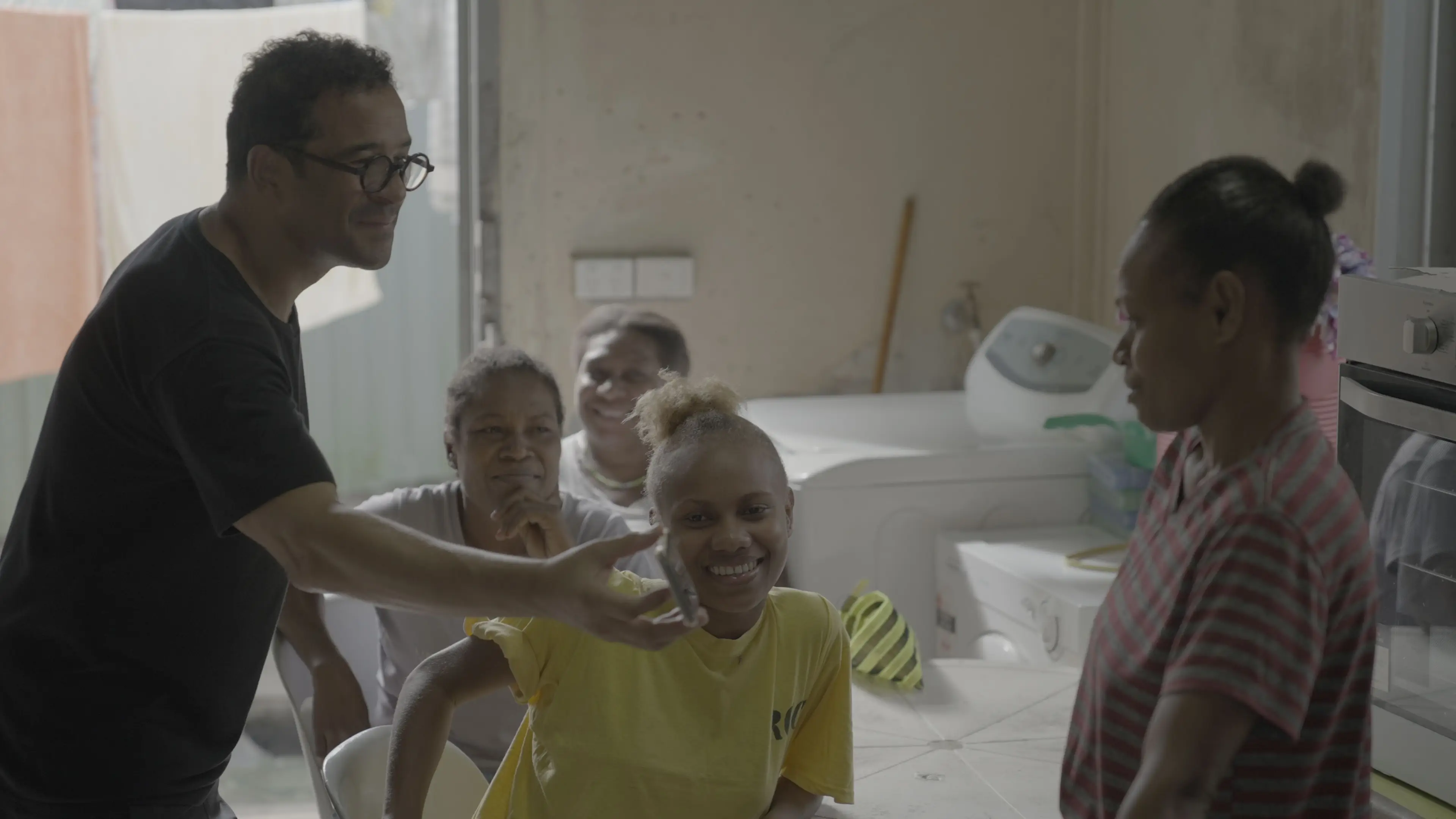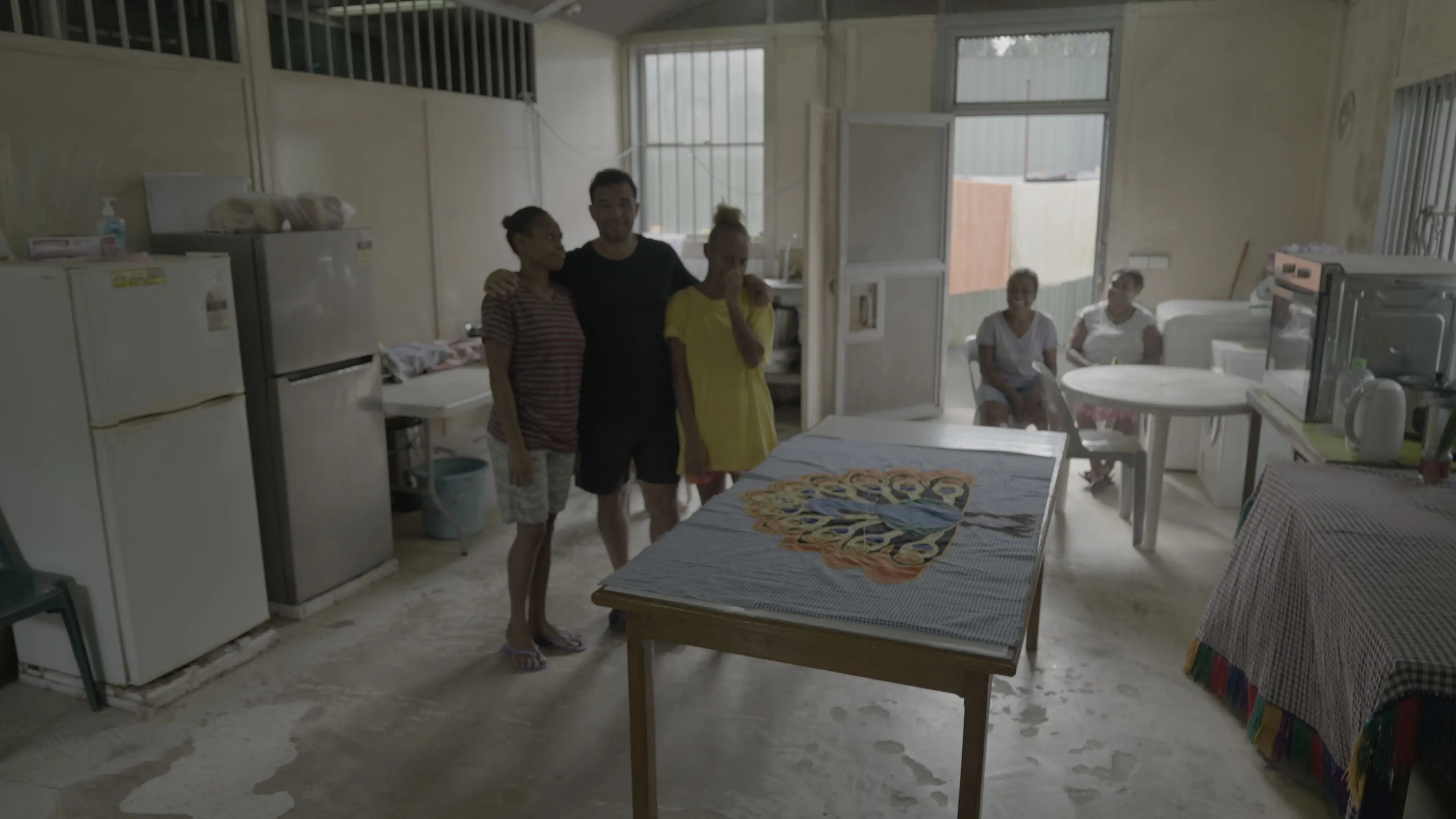
Netflix's Raphael Rowe has revealed how women are treated differently in prisons housing mainly men.
In season seven of his Netflix show Inside the World's Toughest Prisons, Rowe came across several women locked up inside a facility holding a majority of men - Rove Correctional Centre in the Solomon Islands.
The journalist - who spent 12 years wrongly imprisoned himself - tells Tyla he's been left 'quite disturbed' by what he uncovered about the differences in how men and women prisoners can be treated across the globe.
Advert
Rowe has visited 'a number of prisons around the world where they house women prisoners' but stresses he is 'no expert' on women's prisons.
Nevertheless, what Rowe can't help but comment on is how 'really depressing' it was to see how women were 'isolated far more than the men' in Rove Correctional Centre.
He tells Tyla: "They're segregated - for their own protection and to isolate them from the male population - in very small corners of the prison that are not fit for purpose [...] they have confined spaces, they don't have access to the meagre facilities that all the other prisoners [do].
"And so when you sit down like I have, and I did with the Rove prisoners [...], you can just see the damage on their faces.
"[...] Not only are they often female prisoners who have gone through traumatic experiences that led them to do the crimes that they committed, that's led to them being imprisoned - and this is not an excuse, because I don't know the crimes that they committed generally all the time [or] whether they deserve, or don't deserve to be in prison - but you can see the damage."
And that's not where the 'damage' to women prisoners ends.

A lack of access to sanitary products as well as not being able to receive the right toiletries leaves women prisoners 'denied and deprived their basic human right' if located in a facility mainly housing men.
Rowe adds: "Prisons are not geared up to cater for that small handful of women in the prison, they don't know how to treat them, and in Rove, I think they tried, but they just don't have the resources.
"They're like the forgotten few."

And that has a 'huge impact' on the mental health of the women.
"I mean, the confined space that they were living in, and were expected to live in for a very long time is quite shocking. [...] At least with the male prisoners, there's the cells. And then when they get out the cells, they can go into the exercise yards or use other parts of the prison.
"[...] Whereas these women don't get access to any of that. So I was quite disturbed, by the way that they are being treated," Rowe explains.
However, Rowe also notes how he was ''impressed by their strength of character'.
"How they are trying to just, you know, get through probably something they will never overcome," he continues. "So you know, there's always a little silver lining within these individuals that I meet. And for those women, it was that they were muscling on and trying to get through as human beings"
He resolves: "Regardless of what crimes they've committed - I'll let the courts and the victims or whoever it is judged them for that.
"But as human beings as I met them, it was sad to see but at the same time quite inspiring to think they hadn't completely given up on themselves."
Raphael Rowe presents Netflix's 'Inside The World's Toughest Prisons'. Series seven is available from Friday 15 September.
Topics: Health, Mental Health, Netflix, TV And Film, Crime, True Crime
